Coronavirus Australia live news: PM strengthens strategic ties with India
Scott Morrison and Indian counterpart Narendra Modi have elevated the relationship between the two countries as they seek to counter rising Chinese influence.
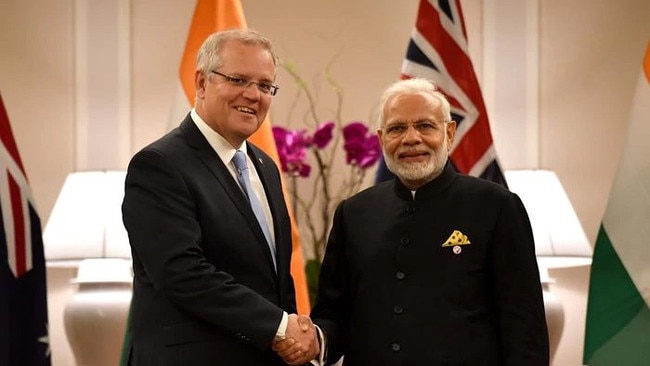
- Australia, India elevate relationship
- New ABS data paints grim picture
- 30,000 new homes, renos under plan
- Pyne, Bishop in renewables push
- $25k HomeBuilder grant: do you qualify?
- Recession confirmed as June hit looms
Welcome to live coverage of the continuing coronavirus crisis. Scott Morrison and Indian counterpart Narendra Modi have elevated the relationship between the two countries in a virtual summit. New Zealand Prime Minister Jacinda Ardern has shot down a business-led proposal to launch flights between Canberra and Wellington. Retail sales plunged a record 18 per cent in April, while Australia’s trade surplus fell 16 per cent to $8.8bn for the month, new data shows. Treasurer Josh Frydenberg has outlined his expectations for the HomeBuilder program, warning it won’t fund new tennis courts or pools.
AFP 8.08pm Prince Charles spurred to action after bout with virus
Britain’s Prince Charles has spoken of his experience of coronavirus, saying he was fortunate to have only mild symptoms and hopes the pandemic will refocus efforts on the environment.
“I was lucky in my case and got away with it quite lightly,” the 71-year-old heir to the throne told Sky News in Britain in an interview broadcast on Thursday.
“I can so understand what other people have gone through. I feel particularly for those who’ve lost their loved ones but were unable to be with them at the time.
“That’s to me the most ghastly thing.”
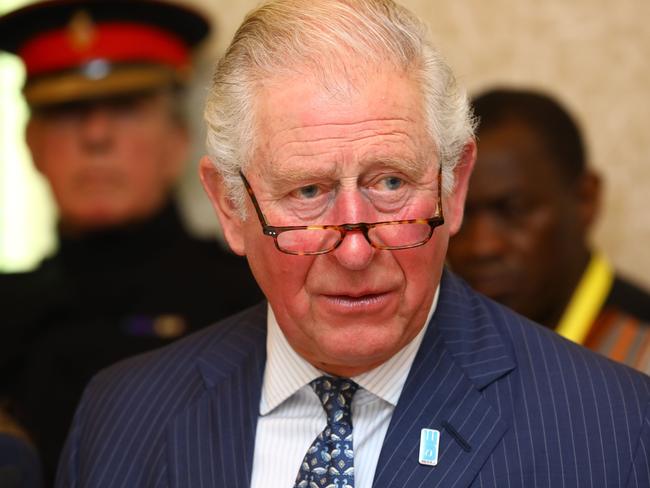
Queen Elizabeth II’s eldest son contracted COVID-19 in March and has spent his isolation and recovery at the monarch’s Balmoral estate in northeast Scotland.
His wife, Camilla, Duchess of Cornwall, did not contract the virus, and self-isolated separately.
He called the outbreak, which has officially claimed more than 40,000 lives in Britain, “an unbelievably testing and challenging time”, which has forced people to reassess their lives.
Charles, a long-time campaigner on the environment, said his experience had made him even more determined to champion the cause.
He said it was important to put “nature at the centre of everything”, warning that by destroying the environment, the risks to life increased.
“We should have been treating the planet as if it was a patient long ago,” he said.
“So, no self-respecting doctor would ever have let the situation... reach this stage before making an intervention hence the precautionary principle, which seems to me absolutely essential.”
READ MORE: How COVID-19 spread through northern Italy
Reuters 7.35pm Spain to open Portugal, France borders
Spanish Tourism Minister Reyes Maroto says all restrictions to border crossings with France and Portugal will be lifted from June 22.
The authorities closed the borders to everybody but Spaniards, cross-border workers and truck drivers from mid-March when the country went into lockdown.
Mr Maroto said Spain would probably lift quarantine for people coming in by land from France and Portugal then, but added that was yet to be approved.
The issue of reopening of borders is a key one in Europe as countries hard hit by the coronavirus pandemic try to kickstart their economies and progressively go back to allowing freedom of movement in what is usually the border-free Schengen area.
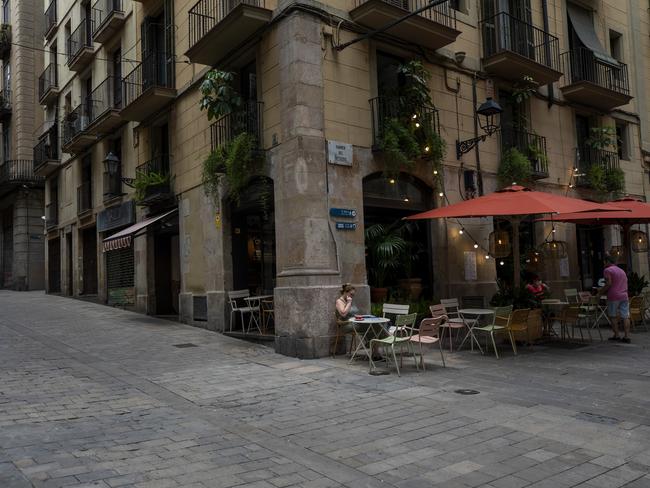
Spain had initially said that it would only start lifting restriction to borders as of July 1, before adding over the past days that some could be lifted earlier.
Mr Maroto provided more details of this plan on Thursday, saying they were working on experimenting with tourism to certain regions in the second half of June, and tour operator TUI was due to bring 6000 German tourists to visit the Balearic archipelago around the island of Mallorca.
France has already said it was in favour of Europe opening its internal borders from June 15.
Portugal officially closed the border until June 15 but the government had previously said it assumed it would remain closed until the end of the month because of Spain’s own restrictions — which now will themselves be lifted earlier.
READ MORE: How to avoid the speedbumps of cycling your post-lockdown commute
AFP 6.50pm Israel parliament shuts after MP tests positive
Israel’s parliament told employees to remain home and cancelled meetings on Thursday, after a member of the Arab-led Joint List tested positive for coronavirus.
“In light of MP Sami Abu Shahadeh contracting the coronavirus, all Knesset workers have been instructed to not arrive at parliament, if their work is not essential,” a statement said.
“In addition, until all the ramifications are examined, all committee meetings scheduled for today have been postponed.”
Mr Shahadeh, a resident of Jaffa, told public radio that over the past 10 days he had met “thousands” of people, including at demonstrations, as well as in all parts of the Knesset.
He and other members of the Joint List had also visited the east Jerusalem mourning tent for Iyad Hallak, 32, a Palestinian with autism who was shot dead by Israeli police on Saturday when they mistakenly thought he was armed with a pistol.
Mr Shahadeh said he was feeling well after receiving the positive test result on Wednesday night, local time.
The partial shutdown of parliament comes as Israeli authorities are dealing with a resurgence in the numbers of people testing positive for the coronavirus, after the reopening of schools and businesses late last month.
Israel has recorded more than 17,300 infections and more than 290 deaths in a population of nine million.
In recent days, 51 schools have closed their doors again after more than 260 pupils and staff tested positive for the coronavirus.
READ MORE: Quest for immunity is the fight of our life
Ben Packham 4.26pm: ‘Time for India relationship to go broader, deeper’: PM
Scott Morrison and Indian counterpart Narendra Modi have elevated the relationship between the two countries to a new comprehensive strategic partnership, vowing closer cooperation on science and technology, defence and maritime security.
The move, as both countries seek to counter rising Chinese influence, was founded on the high level of trust between the democratic nations, Mr Morrison said during his virtual summit with Mr Modi on Thursday.
At the virtual summit with PM @ScottMorrisonMP. https://t.co/6JIpZRae21
— Narendra Modi (@narendramodi) June 4, 2020
“It is time for our relationship to go broader and deeper,” the Prime Minister said.
“In a time like this we want to deal very much with friends and trusted partners. And this is a partnership which has stood the test, time and again, and is during the course of this current crisis.
“We share a vision for open, free, rules-based, multilateral systems in our region. Whether that is in the health area or it is in trade or other places. We engage in those as confident but sovereign nations.”
The pair were due to sign agreements to work together more closely on science and technology, and to more easily conduct joint military exercises.
A new maritime agreement will also enable closer cooperation in maintaining security in the Indian Ocean.
The comprehensive strategic partnership is Australia’s fourth, after agreements with Singapore, Indonesia and China.
However, the Chinese strategic partnership is no longer living up to its name, with Australian ministers unable to raise Chinese counterparts on the phone.
The virtual summit today follows the cancellation of a planned state visit by Mr Morrison to India. The trip was rescheduled for May but had to be cancelled again due to the global coronavirus crisis.
READ MORE: Morrison identifies India as major trade partner
Ben Wilmot 4.22pm: Homebuilder: Apartment developers ‘left out of scheme’
Apartment developers fear they have been left out in the cold by the Morrison government’s scheme to stimulate homebuilding with the industry saying the grants may not help much as projects stall in the face of the coronavirus crisis.
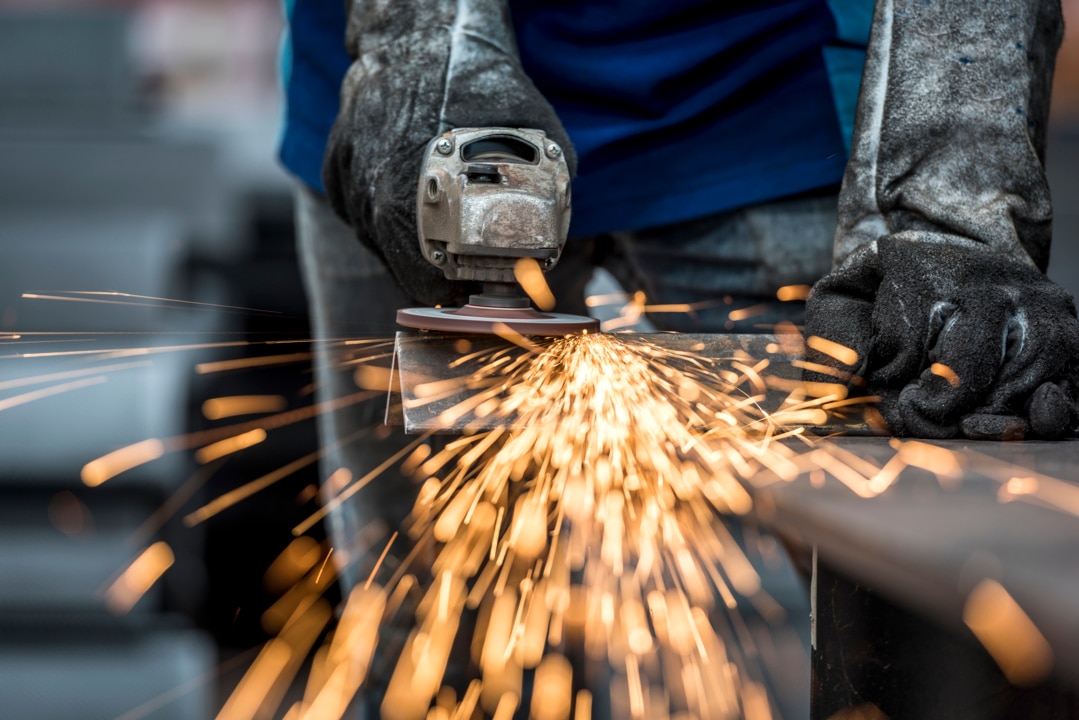
Unit developers are facing price drops of up to 20 per cent at the top end and kick starting high rise projects is critical to getting momentum back into the market.
Apartment kingpin Harry Triguboff warned on Thursday that luxury units had the largest falls with a smaller fall off at the lower and medium level
READ MORE: Apartment developers ‘left out’
Perry Williams 3.42pm: Wide-scale subsidies ‘not on the cards’: Power
National COVID-19 Coordination Commission chair Nev Power said a leaked report pushing for the government to subsidise cheap gas to turbocharge manufacturing did not reflect the views of the Commission, but it remains open to public ownership of new pipelines.
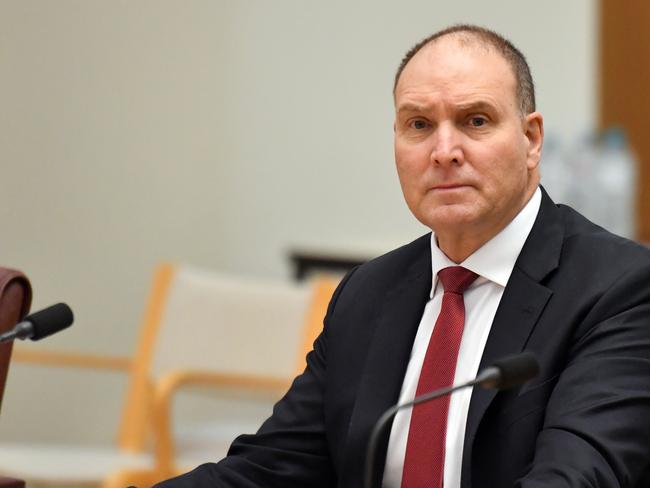
A NCCC manufacturing taskforce chaired by former Dow boss Andrew Liveris recommended the federal government guarantee gas volumes, open new fields and build pipelines to halve the price of the fossil fuel to a $4 a gigajoule target.
“The leaked report doesn’t reflect the views of the Commission,” Mr Power told the Senate’s COVID-19 Committee.
“It was an interim report and I can’t recall whether we’d seen it at all or whether it was in very early draft or presentation when we saw it.”
A final report has now been submitted to the government and while wide-scale subsidies are not being considered, the Commission does support government backing for gas infrastructure such as pipelines.
READ MORE: Retail slump has us shopping like it’s 1995
AP 3.14pm: Crowd-free treat for art lovers in Italy
The Uffizi Galleries, the most-visited museum in Italy, is open after three months of COVID-19 lockdown, delighting local art lovers who don’t have to jostle with throngs of tourists.
Uffizi director Eike Schmidt says the government-ordered closure of museums during coronavirus containment measures meant 1 million fewer visitors and 12 million euros less revenue for that period.
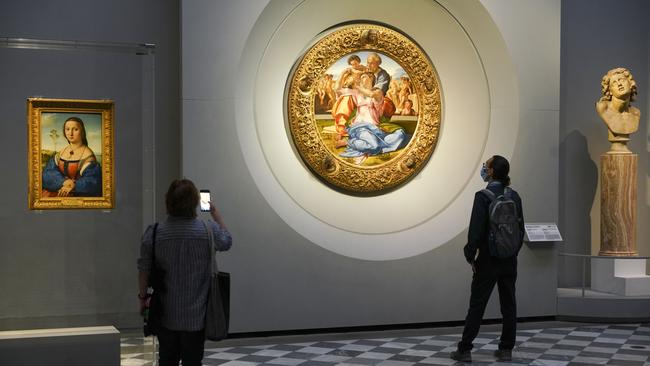
Now, a limit of 450 people at one time are allowed in the Uffizi’s many galleries, chock full of some of the art world’s greatest masterpieces. That means visitors no longer have to elbow their way to admire such masterpieces as Botticelli’s “Birth of Venus.” Visitors to the highly popular Vatican Museums, which reopened two days earlier after lockdown, similarly could appreciate opportunities rarely available in the past. These include enjoying Michelangelo’s frescoed ceiling in the Sistine Chapels without many other tourists jockeying for a spot where they can crane their neck to observe the masterpiece overhead.
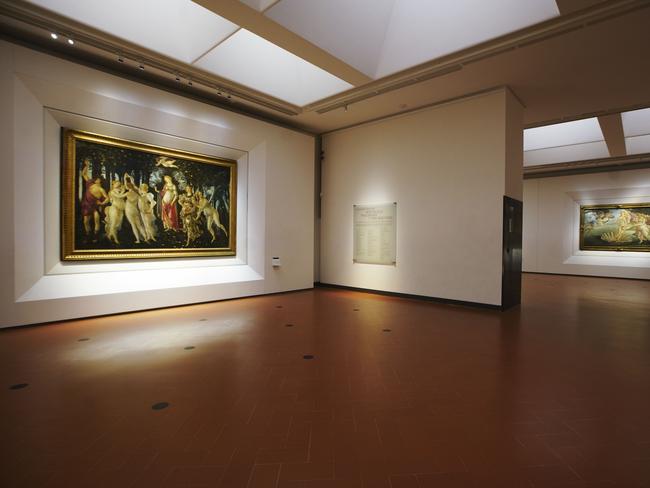
As an added bonus, the Vatican Museums visitors can now see work confirmed, after several years of delicate cleaning and restoration, to be painted by Raphael shortly before his death in 1520.
The Vatican had planned to unveil the “rediscovery” of Raphael’s work at an international convention of art experts in April. But the coronavirus outbreak forced that plan to be scrapped.
Instead, rank-and-file art lovers who visit the rooms of the Vatican decorated by Raphael, can now admire the feminine figures.
READ MORE: $345m ‘revival’ needed for arts
Richard Ferguson 2.53pm: Ardern rejects Canberra-Wellington flight proposal
New Zealand Prime Minister Jacinda Ardern has shot down a business-led proposal to launch flights between Canberra and Wellington, saying Australia is not yet safe enough.
The Australian revealed on Wednesday that Australians will now be able to register their interest for flights to New Zealand in July, amid a concerted push from the business community to use a Canberra-Wellington route as a guinea pig to test whether the trans-Tasman bubble is safe.
Ms Ardern has now refused to back the July date and said in Wellington that a trans-Tasman bubble will not be considered until there is less coronavirus in Australia.
“Australia is still dealing with cases so a little more progress is required. I’ve been really careful not to put a date,” she said on Thursday.
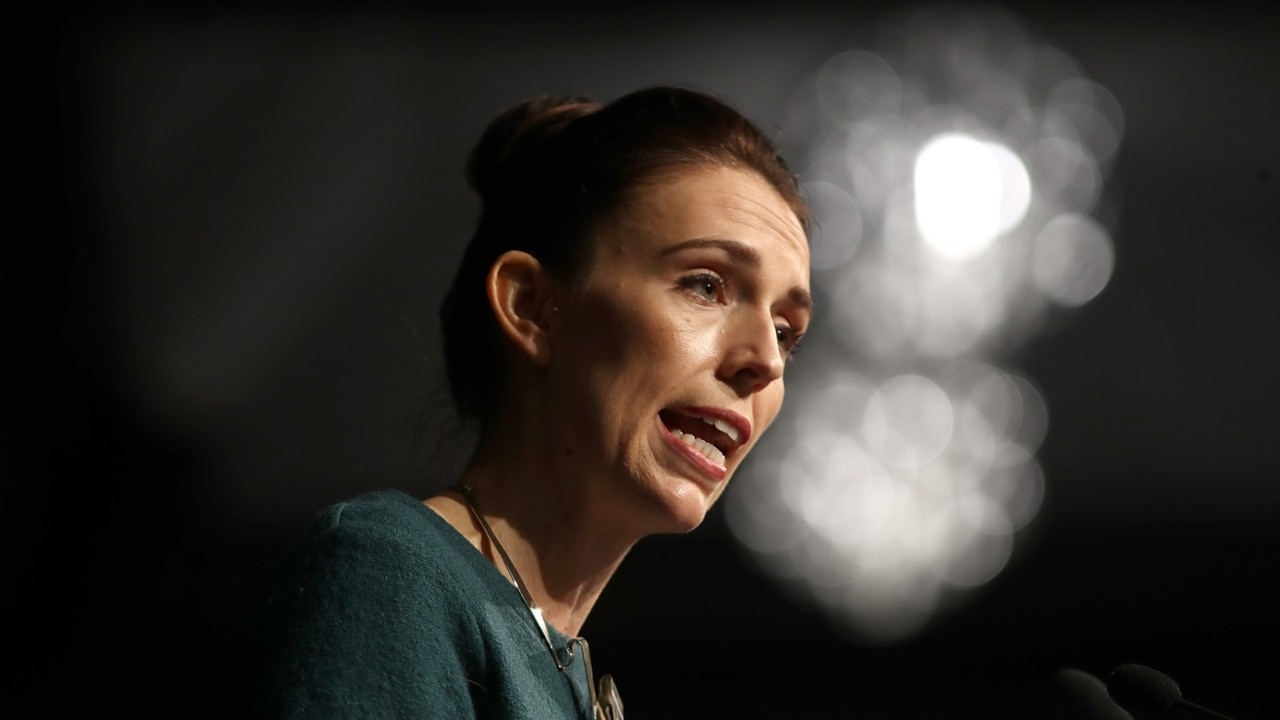
“I don’t want to raise expectations particularly with the tourism sector without knowing what is possible. But I think it is fair to say we are all very eager, we are just eager to do it safely.”
The Australian understands that the Australian government is also not preparing to go ahead with the Canberra-to-Wellington plan put forward by the Australian Chamber of Commerce and Industry and other business groups on both sides of the Ditch.
New Zealand Foreign Minister Winston Peters also said on Thursday that his government would prefer to broader options for routes to Australia.
“I have nothing against Canberra but I am for mass population movement by way of demand rather than capital cities,” he said.
Air New Zealand has also said it will not partake in any Canberra-to-Wellington route.
Both Ms Ardern and Scott Morrison are also due to receive a report from the Australia-New Zealand Leadership Forum on late Thursday on a possible travel bubble, which government and industry sources say will be the likeliest blueprint for any reopening of borders.
It is also understood that September is the most likely date for a restart in travel between the two countries.
READ MORE: NZ flight plan to test the ‘trans-Tasman bubble’
Paul Garvey 2.44pm: Random breath tests to return in WA
Western Australian police will resume roadside random breath testing from Saturday, ending a months-long coronavirus-inspired pause in the practice.
The state’s so-called Booze Buses had been parked up since mid-March due to health risks associated with the pandemic, although roadside breath testing by police traffic patrols had continued throughout.
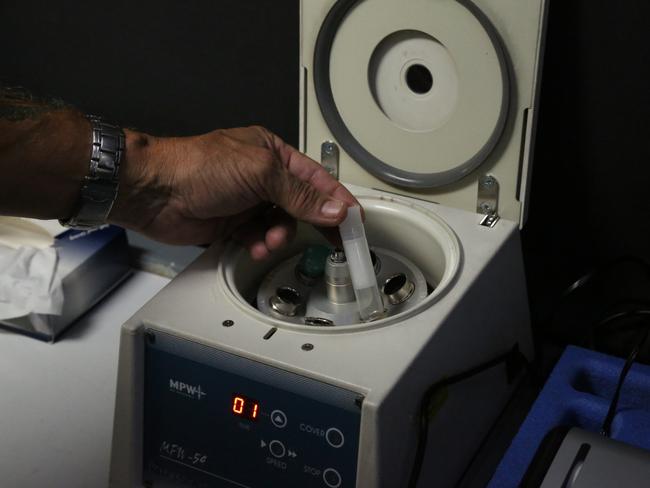
A wide array of coronavirus restrictions will be eased in WA from Saturday, with limitations on the serving of alcohol and the numbers of patrons allowed in pubs and restaurants set to be loosened.
“The return to normal roadside breath and drug testing will coincide with the broader lessening of COVID-10 restrictions in WA, which will likely see increased patronage of pubs, hotels and other licensed venues,” WA police said in a statement.
WA Police said the operating procedures for the breath tests had been modified to factor in “COVID-safe” practices.
READ MORE: ‘Light touch cost Sweden many lives’
Max Maddison 2.03pm: ‘Truly incredible’: only three active Qld virus cases
Queensland only has three active cases of COVID-19, says Deputy Premier Steven Miles, which he labels a “truly incredible result”.
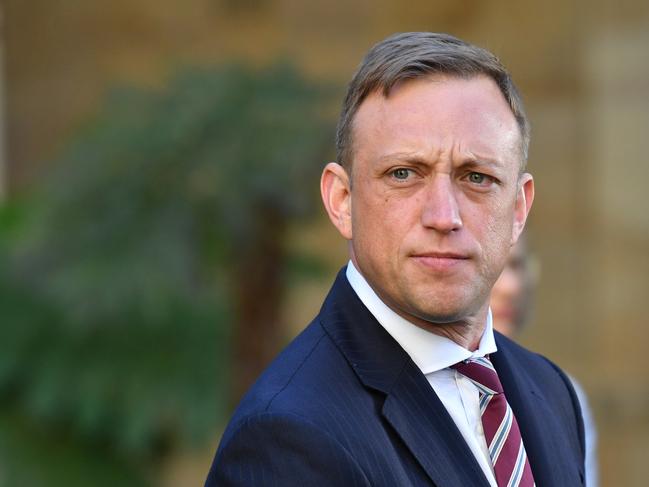
Speaking at a press conference, Mr Miles said two of those cases are currently in hospital, with one needing a ventilator in an intensive care unit.
Queensland Health have tested 198,292 people, with an increase of 4,416 in the previous 24-hours.
Mr Miles also announced that Qantas and Jetstar will add an additional 62 intrastate flights into regional Queensland. Townsville, Rockhampton, Mackay and the Whitsundays will be the major beneficiaries of the decision.
However, no mention of when the Queensland government intends on opening the borders.
READ MORE: Aviation workers ‘struggling’
Agencies 1.55pm: NSW pay freeze plan heads to IR commission
The fight over the NSW government’s controversial 12-month pay freeze plan for public servants during the coronavirus crisis is headed to the Industrial Relations Commission, AAP reports.
The policy was blocked in state parliament on Tuesday when Labor and crossbench MPs united to pass a disallowance motion in the upper house. The Berejiklian government had argued the freeze would guarantee jobs for public servants and free up funds for job-creating projects to support others who have lost work.
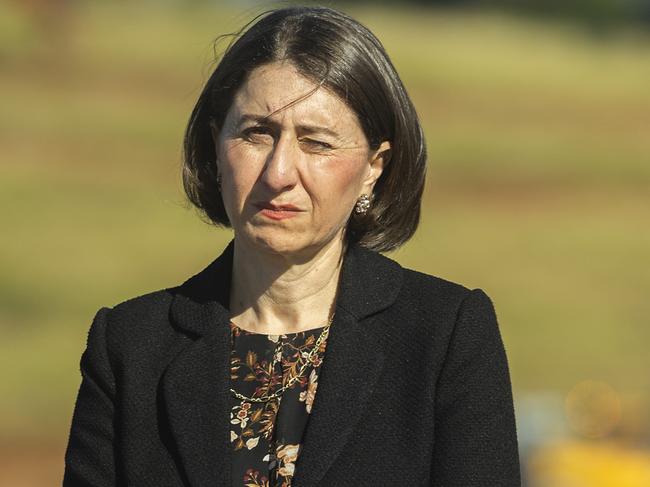
But the wage policy has been opposed by unions and frontline workers, including paramedics, nurses, police officers and teachers.
The Berejiklian government will now pursue the measure through the Industrial Relations Commission, with conciliation to start in Sydney on Thursday. The pay freeze plan included a one-year guarantee of no forced redundancies for workers who weren’t senior executives, and a proposed one-off $1000 stimulus payment.
Premier Gladys Berejiklian previously warned the $1000 payment would be off the table if IRC intervention was required, as well as the promise of no forced redundancies.
Asked on Thursday if the government would add to unemployment with public sector job losses, the premier said it was up to the independent arbitrator.
READ MORE: Light touch cost Sweden ‘many lives’
Agencies 1.30pm: George Floyd had COVID-19, autopsy shows
A full autopsy of George Floyd, the handcuffed black man who died after being restrained by Minneapolis police, was released Wednesday and provides several clinical details, including that Floyd had tested positive for COVID-19, AP reports.
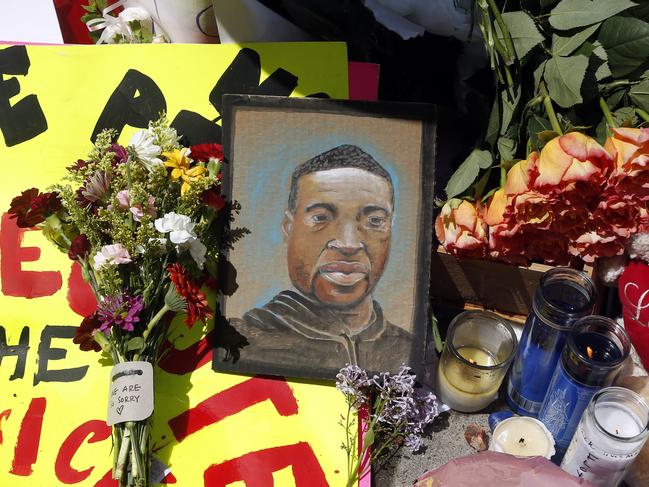
The 20-page report released by the Hennepin County Medical Examiner’s Office came with the family’s permission and after the coroner’s office released summary findings Monday that Floyd had a heart attack while being restrained by officers, and classified his May 25 death as a homicide.
The report by Chief Medical Examiner Andrew Baker spelled out clinical details, including that Floyd tested positive for COVID-19 on April 3 but appeared asymptomatic. The report also noted Floyd’s lungs appeared healthy but he had some narrowing of arteries in the heart.
READ MORE: More police charged
Agencies 1.15pm: Brazil reports record number of deaths, again
Brazil has registered a record number of daily deaths from the coronavirus for a second consecutive day, according to Health Ministry data, even as city and state authorities move aggressively to open commerce back up, AAP reports.
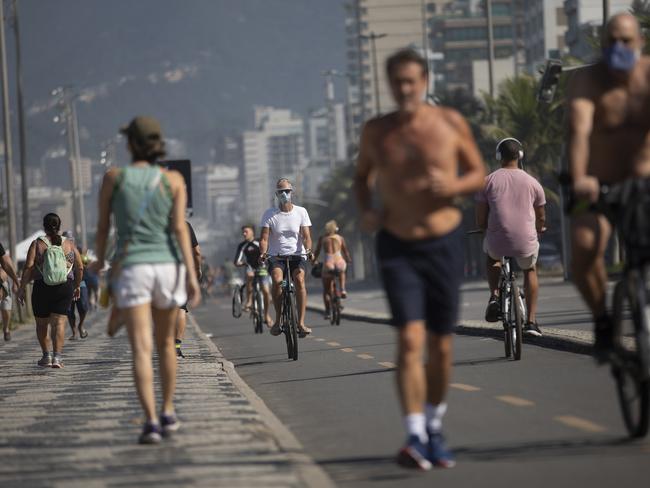
The nation recorded 1349 new coronavirus deaths on Wednesday and 28,633 additional confirmed cases, the data showed. Brazil has now registered 32,548 deaths and 584,016 total confirmed cases.
In Brazil, right-wing President Jair Bolsonaro has repeatedly downplayed the threat of the virus, saying on Tuesday that death was “everyone’s destiny.”
State and local authorities that have supported quarantining measures are loosening restrictions as hunger grows and public finances, shaky in the best of times, plummet deep into the red.
In Rio de Janeiro, the nation’s second-largest city, many types of shops were allowed to open on Tuesday for the first time in months.
READ MORE: Get off the grass, PM and journos told
Agencies 12.50pm: Former speaker: scrap Question Time
A highly respected former speaker of the House of Representatives has questioned the need for question time, AAP reports.
Harry Jenkins says politicians could be making better use of their time helping constituents rather than being sitting through the theatrical hour of televised combat.
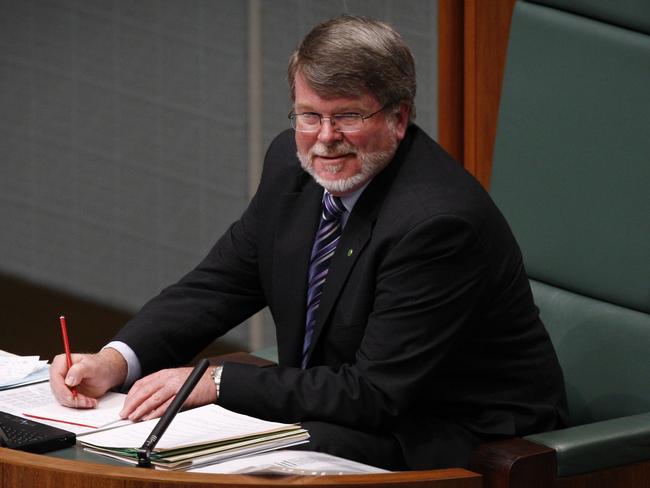
When asked if question time should be scrapped, Mr Jenkins agreed. “In the 21st century, if you are building our parliamentary procedure from scratch, would you have question time?” he told a parliamentary inquiry on Thursday.
The ex-Labor MP was speaker under Kevin Rudd and Julia Gillard before retiring from the role in 2011.
During his time in the chair, Mr Jenkins relaxed the rules around the use of props in the lower house, but his efforts were abused.
“It was just then used for political advantage and made a mockery of,” he said. The use of phones and devices was also dreadful, especially in terms of public perception, he said.
“The real danger is that it can be an absolutely bad look.”
Mr Jenkins also pointed to Scott Morrison’s trip outside of Canberra on Thursday morning to announce a $688 million construction stimulus scheme.
He said the prime minister should have fronted other politicians to face questions, rather than just relying on the filter of the media.
— AAP
READ MORE: Banks lead market rally
LACHLAN MOFFET GRAY 12.20pm: COVID committee details priority sectors
The National COVID-19 Coordination Commission has detailed priority manufacturing sectors it would like to see developed and expanded without government assistance to the Senate’s COVID-19 Committee. NCC Chair Nev Powers said the commission’s manufacturing taskforce wants to enhance energy intensive manufacturing, high-value manufacturing like 3D printing, foodstuff value-add manufacturing, defence and sovereign capability manufacturing, medtech and minerals processing with a focus on the “battery minerals area.”
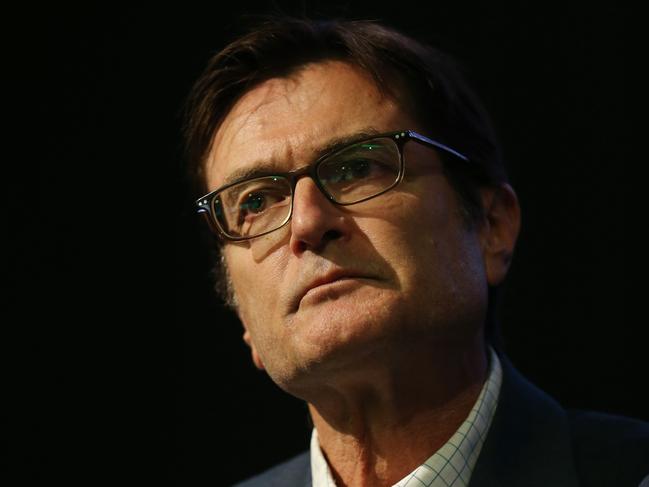
The NCC was briefed to look at ways to establish these sectors “without government assistance and support” to create an internationally competitive manufacturing sector that will see trade arrangements vulnerable to disruption from COVID — like the widespread export of raw food products and then re-imported — cease.
The other working groups attached to the commission will also seek to rectify problems caused by COVID-19 in their areas. The not-for-profit working group led by UNICEF Australia boss Tony Stuart will examine ways the pandemic has affected gift giving and volunteer staffing levels.
The industrial relations working group, chaired by former ACTU secretary Greg Combet, will continue to resolve the disruption of the transport of materials through ports.
READ MORE: Man behind surprise Virgin bidder
MAX MADDISON 12pm: NSW goes full week with no community transmission
NSW has gone an entire week without community-to-community transmission of COVID-19, says Premier Gladys Berejiklian, as she praises an “outstanding result”.
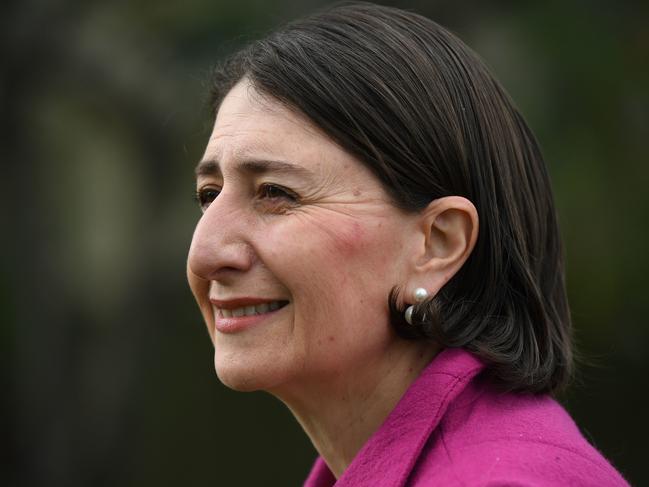
Speaking at a press conference, Ms Berejiklian confirmed two new cases of coronavirus since yesterday. However, she urged the community to remain “cautious” and “vigilant”.
“We have gone a full week without a community-to-community transmission, that’s a great result,” Ms Berejiklian said. “We want to keep that going as much as we can, especially given restrictions are easing, have eased, and this long weekend is an opportunity for people to enjoy the best that NSW has to offer in a safe way.”
READ MORE: Fashion cools on hot offers
PATRICK COMMINS 11.25am: New ABS retail trade data released
Retail sales plunged a record 18 per cent in April, while Australia’s trade surplus fell 16 per cent to $8.8bn for the month, new data from the Australian Bureau of Statistics shows.
The 17.7 per cent drop in spending was only marginally lower than the 17.9 per cent preliminary estimate released late last month, and confirms the end of panic buying in March which charged the biggest ever boost to turnover in that month.
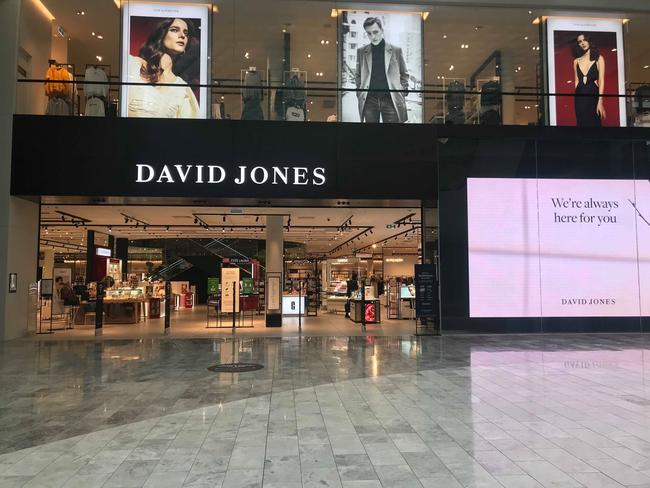
The international trade in goods and services figures showed a step back in iron ore exports after a big increase in the prior month as China reopened it economy. Services exports fell 13 per cent and service imports 42 per cent as Australia’s borders were closed through the month.
National accounts figures released yesterday showed the early impact of the health crisis drove a 0.3 per cent contraction in the economy over the first three months of the year, putting Australia on course for two consecutive quarters of negative growth – the technical definition of a recession.
A 1.1 per cent plunge in household spending drove the economic hit in the quarter, as social distancing measures kept Australians to stay at home, taking a particular toll on services industries such as cafes, restaurants and hotels.
Net exports added to March quarter growth, but only because imports fell by more than exports.
READ MORE: Cost of beating virus: recession
MAX MADDISON 11.40am: NSW records two new cases overnight
NSW has confirmed two new cases of COVID-19 in the past 24-hours. Both confirmed cases are travellers in hotel quarantine. The confirmed cases brings NSW’s total figure to 3106, with 71 cases currently active. One person remains in an intensive care unit. NSW Health have conducted over 533,000 COVID-19 tests, including 11,365 tests yesterday.
READ MORE:
MAX MADDISON 11.30am: Mexico records surge of virus deaths
Mexico has seen a surge of deaths from coronavirus with 1092 recorded yesterday — twice the previous record. The number of daily recorded cases was also a record high of 3912.
Central America has become the hub of coronavirus cases in recent weeks, with skyrocketing cases in Brazil and Mexico. Currently, Mexico has 101,238 confirmed cases and 11,729 deaths, however, it is believed that the real figures are higher.
READ MORE: Bali beaches still off limits
PATRICK COMMINS 11.25am: COVID chairman grilled over private jet use
More from the Senate committee looking into the government’s response to the COVID-19 crisis which is in session this morning. National COVID-19 co-ordination commission chairman Nev Power and Prime Minister & Cabinet boss Phil Gaetjans are present.
The chair of the committee, Labor senator Katy Gallagher, grilled Mr Power, a former Fortescue chief executive, on the use of his private jet, which he uses to cruise back and forth on the public dime from his home in Perth to his job in Canberra for which he receives a $290,000 allowance to cover costs.
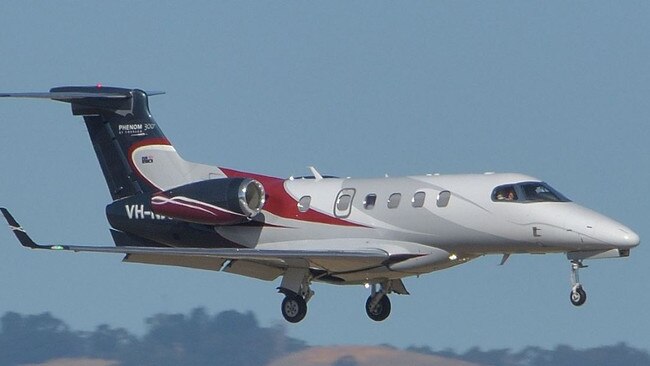
No he hadn’t used it for trips to Queensland and Essendon Airport — it’s also a charter jet so it flies around without him.
A trip to Merimbula on NSW’s South Coast was a personal trip to visit a friend in Bermagui — nothing to do with a by-election happening down that way. What about the time, Senator Gallagher pressed, when Mr Power, in his words, “gave a lift” back from Perth to Finance Minister Mathias Cormann, Attorney-General Christian Porter and Liberal MP Ben Morton?
What did they discuss on this plane trip?
Why nothing at all, Mr Power said. Why? Because he flies the jet.
“Impressive,” muttered Senator Gallagher.
READ MORE: Qantas to triple domestic flights
MATTHEW DENHOLM 11.15am: Tasmania unveils $3bn construction blitz
Tasmania will attempt to kick-start its economy and rebuild state finances via a $3.1 billion “construction blitz” targeting housing, roads and irrigation.
Premier Peter Gutwein said his Liberal government would spend $1.8b over two years to support a $3.1b spend overall, including private sector involvement.
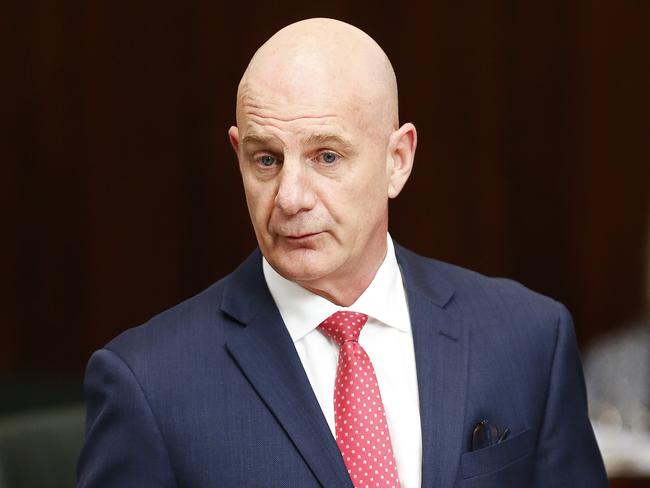
“The best way to get our budget back on track and grow business confidence and create jobs is to grow the economy, and that is what we are doing,” Mr Gutwein said. “These are challenging times, but now is not the time to sit idle; now is the time to unleash the greatest stimulus program we can, to kick-start the recovery process and help get Tasmania back on track and back in business.”
An extension of the state $20,000 home owners grant, combined with the federal government $25,000 scheme, meant up to $45,000 would be available to those building a new house.
Other highlights of the coronavirus-related stimulus package include:
■ About 2,295 new homes, including $100m for an additional 1,000 social housing units; a further 220 “affordable” homes, and; $20m to extend the $20,000 first home owners grant to all building applications in 2020.
■ About $55m for road and irrigation infrastructure and about $42m to upgrade health centres, ambulance stations and police stations and houses.
■ About $167.5m for community infrastructure, including $68.5m to upgrade the Derwent Entertainment Centre, in Hobart’s north, to allow Tasmania to have a team in the National Basketball League.
■ Redirection of $200m in capital held by the state Retirement Benefits Fund superannuation scheme to local investments.
READ MORE: Editorial — This recession must change us for good
ELIZABETH AMMON 11am: Three West Indies players refuse to tour UK
Three West Indies players have refused to be part of the squad to tour England for three Test matches next month because of concerns over coronavirus.
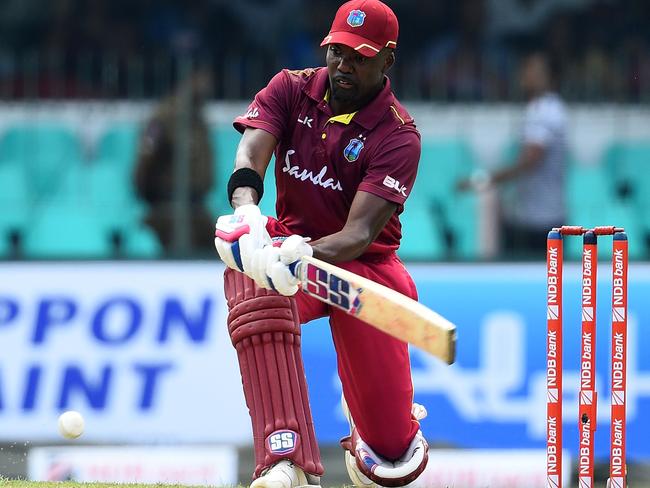
The batsmen Shimron Hetmyer and Darren Bravo, both of whom would probably have been in the first XI, and the all-rounder Keemo Paul asked to be left out of the 25-man squad named on Wednesday for the series that begins on July 8. The West Indies players had their salaries cut by 50 per cent last week due to the pandemic.
While the UK has had about 280,000 confirmed cases of the virus, Caribbean countries have been considerably less affected, with only about 30,000 confirmed cases, the majority of those in non-cricketing parts of the region. The touring party is due to arrive in Britain on June 9 and every player and member of support staff will be tested before departing their respective islands to meet up in Antigua. Those who test positive will not be allowed to travel.
READ THE FULL STORY here.
JACQUELIN MAGNAY 10.55am: PM praised by former spy chief over China
Scott Morrison has been praised by Sir Richard Dearlove, the former head of the British secret intelligence service MI6, for “taking on China’’ and demanding an investigation into the origins of coronavirus.
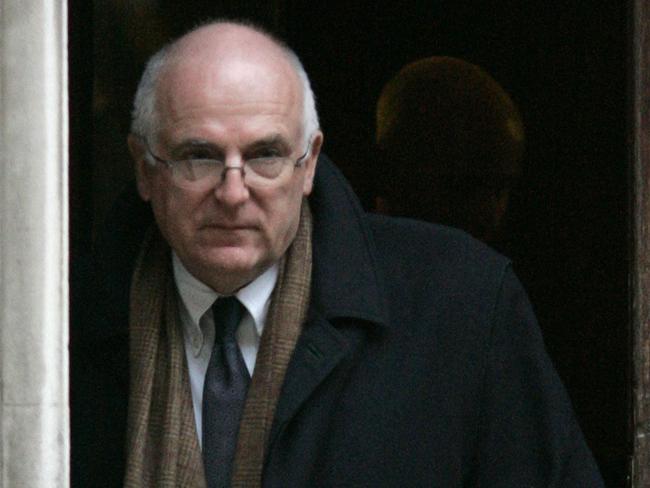
In a podcast Planet Normal published by The UK’s Telegraph, Sir Richard said Australia had led calls for an official inquiry by insisting on weapons inspector powers to look at the causes and spread of the coronavirus.
“I think it’s very courageous of the Australians to take China on,” said Sir Richard, who was known as “C” when he was Britain’s chief spy between 1999 and 2005. “I mean, there’s an obvious, huge imbalance in terms of power, both economic and military and political, but they are showing the way. You have to have a critical relationship with China.”
READ THE FULL STORY here.
Max Maddison 10.45am: Victoria records eight new virus cases
Victorian Premier Daniel Andrews says eight new coronavirus cases have been confirmed in the past 24-hours. Six have come from hotel quarantine, one is from contact with a known case while the last one was discovered during community testing.
Victoria’s total number of confirmed COVID-19 cases is 1678.
READ MORE: Night at the drive-in
LACHLAN MOFFET GRAY 10.35am: COVID committee to push natural gas
The National COVID-19 Coordination Commission will advocate for policies that will lead to the “fastest possible recovery” of the Australian economy, including a greater role for natural gas in energy generation, chair Nev Power has told the Senate’s COVID-19 Committee.
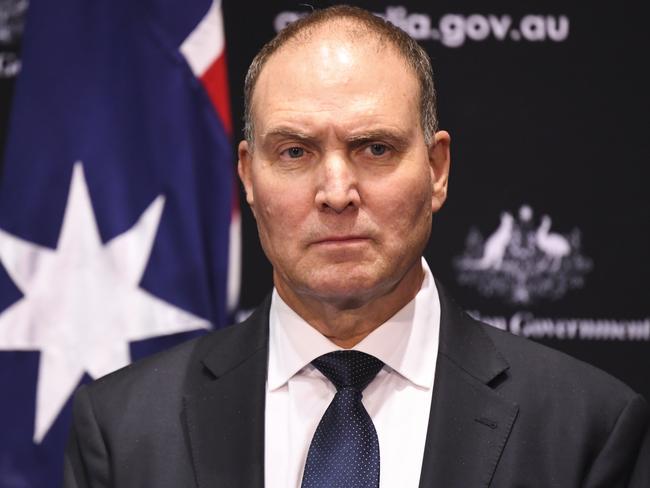
Mr Power said that since the commission first met on March 27 it has helped the government resolve issues relating to PPE distribution and cross-border supply chains, before moving to helping business establish COVID safe plans for reopening, with the commission’s business planning tool being downloaded more than 21,000 times.
The commission will now focus on economic recovery and improving productivity, a key part of which should be the increased use of natural gas to assist manufacturing.
“We should be looking at competitive gas supply for its potential as a raw material for both existing and new manufacturing industries,” Mr Power said in his opening statement, adding that he agreed with Chief Scientist Dr Alan Finkel’s views on the utility of natural gas in helping Australia transition to lower-emission energy sources.
Pre-empting perceived conflicts of interest due to his position as a non-executive board member of oil and gas producer Strike Energy, Mr Power said he has “not attended a board meeting of Strike Energy since I joined the commission” and has not “voted on any strategic operational matters.”
READ MORE: Queensland coal industry wins decade of certainty
Alison Sider 10.25am: US to block flights by Chinese airlines
The Trump administration has threatened to bar mainland Chinese airlines from flying to and from the US starting later this month, saying Beijing has failed to approve resumption of these routes by US carriers.
The threat of a ban was the latest sign of souring US-China relations that are at their worst in more than three decades. Some US airlines have sought to resume service to China this month after suspending flying there earlier this year, as the coronavirus pandemic took hold.
The US Transportation Department, led by Secretary Elaine Chao, said that the Civil Aviation Administration of China hasn’t approved requests by United Airlines and Delta Air Lines to resume flights. The DOT accused China of violating an agreement that governs air travel between the two countries.
The transportation agency said it would reconsider its planned ban, if Chinese regulators adjust their policies to allow US carriers to return. “Our overriding goal is not the perpetuation of this situation, but rather an improved environment wherein the carriers of both parties will be able to exercise fully their bilateral rights,” the DOT’s order said. “Should the CAAC adjust its policies to bring about the necessary improved situation for US carriers, the Department is fully prepared to revisit the action it has announced in this order.”
Chinese carriers continued to fly passengers between the US and China even after US carriers had stopped flying in February and March, albeit at reduced levels. Currently four Chinese airlines — Air China, China Southern Airlines, Xiamen Airlines and China Eastern Airlines — operate scheduled passenger flights between the two countries, the Transportation Department said. Other Chinese carriers that were planning to add flights in the coming months, according to filings with the Transportation Department, would be barred from doing so under the order.
The order blocking Chinese carriers is set to go into effect June 16 unless revoked. President Trump could opt to put it into effect sooner. A White House spokesman declined to comment on whether the president would do so. The order affects only mainland Chinese carriers, not Hong Kong carriers. — The Wall Street Journal
Ben McKay 10.15am: NZ’s COVID-19 elimination day set
New Zealand finally has a date for when it will achieve its lofty goal of elimination of COVID-19: June 15.
After weeks of urging by public health experts and government wrangling, the country’s Health Department has settled on a definition of elimination of the deadly virus.
New Zealand has followed an elimination policy path since the arrival of the virus in the South Pacific country, eschewing lighter approaches by countries including Australia.
That approach, including a seven-week lockdown, is paying dividends. On Wednesday, health officials announced for the 12th straight day they had found no new cases of the virus, from thousands of tests.
Just one person in New Zealand has COVID-19, an Aucklander who is currently isolating and is due to be asymptomatic this week, should the virus follow a normal course.
However, that case is irrelevant to whether New Zealand has eliminated the disease.
The Ministry of Health now says elimination can be declared 28 days after the last case from a “locally acquired unknown source”, or community transmission, has completed their treatment and tested negative.

According to the Ministry, New Zealand’s last case of community transmission tested positive on April 29, and was in isolation until May 18. “As per the definition of elimination, the 28 day period would be counted from that person’s exit from isolation,” a department spokeswoman said. That means when Director General of Health Ashley Bloomfield holds his regular daily briefing at 1pm on June 15 — 28 days from May 18 — he will be able to say New Zealand is the first nation to eliminate COVID-19.
Of course, a subsequent discovery of another case of community transmission would restart the clock towards the elimination milestone.
The date has symbolic meaning but Dr Bloomfield said it wouldn’t stop the government’s ongoing work to prevent new cases. “Elimination is an ongoing process,” he said.
Other countries close to similar “elimination” goals include the island nations of Iceland (two active cases) and Taiwan (eight active cases). Australia currently has 491 active cases of COVID-19. — AAP
READ MORE: NZ flight plan to test the ‘trans-Tasman bubble’
Max Maddison 10am: Economy needs ‘outcomes not slogans’
The Australian economy needs “slick policies and outcomes, not slogans”, says Anthony Albanese, as he calls out the Government’s laissez-faire, “she’ll be right” approach to the economy.
Still speaking at a press conference in Sydney, the Opposition Leader said the economy was “really struggling” before January 1, with among other things, public debt doubling, consumer demand falling and productivity going backwards.
“So the economy was not in good shape and the Government was complacent about it. The Government was sitting back and saying, ‘She’ll be right, mate’, without putting in an economic plan,” Mr Albanese said. “What this country needs is slick policies and outcomes, not slogans.”
READ MORE: Trading Day — Listed builders ready for reno boost
"There aren't too many battlers out there who have a lazy $150,000 who will see this announcement today and say, 'I'm going to go between now and December 31 and sign a contract for a project which is worth more than $150,000'" - @AlboMP. #auspol #7NEWS https://t.co/zmi0fJL9kw
— 7NEWS Sydney (@7NewsSydney) June 3, 2020
Max Maddison 9.47am: Albanese flags HomeBuilder’s ‘greatest weakness’
The “greatest weakness” of the HomeBuilder stimulus package is the complete lack of funding given to social housing, says Anthony Albanese, while flagging concerns that the $150,000 will go to projects that were going to be built anyway.
The Opposition Leader said the government’s support package should be focused on supporting the construction of affordable housing closer to where people work, particularly essential workers.
“There’s nothing wrong with supporting private housing – that’s a good thing – but this package today will require $150,000 of expenditure at a time of economic uncertainty. Not many people have $150,000 ready to go, ready to sign a contract,” Mr Albanese told ABC News.
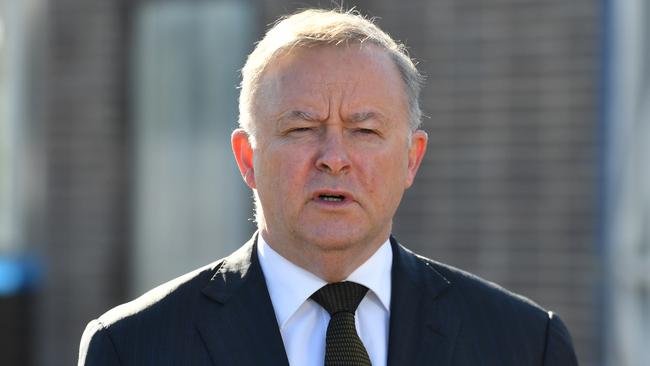
“The government needs to have a comprehensive plan that deals … with social housing, and that’s the biggest weakness in the package.”
Referring to his own childhood in social housing, Mr Albanese says the queues for social housing have grown longer recently, and says it’s an issue that the government “doesn’t seem slightly interested in”.
“Well, look, this package, we’re just very concerned about how targeted it is and how many people, who weren’t going to do renovations anyway, will actually build in. That’s the other factor here. Will this be supporting projects that were ready to go anyway?” he said.
READ MORE: Grand designs for tradies and homeowners
Max Maddison 8.56am: HomeBuilder could spur apprenticeships: Cam
TV personality Scott Cam isn’t sure how much of a boost the construction industry will receive from the HomeBuilder program, but believes the stimulus could spur apprenticeship hiring.
The National Careers Ambassador, who recently came under fire for his $347,000 contract, said the benefits would probably become apparent towards the end of the year as things began to “tighten up”.
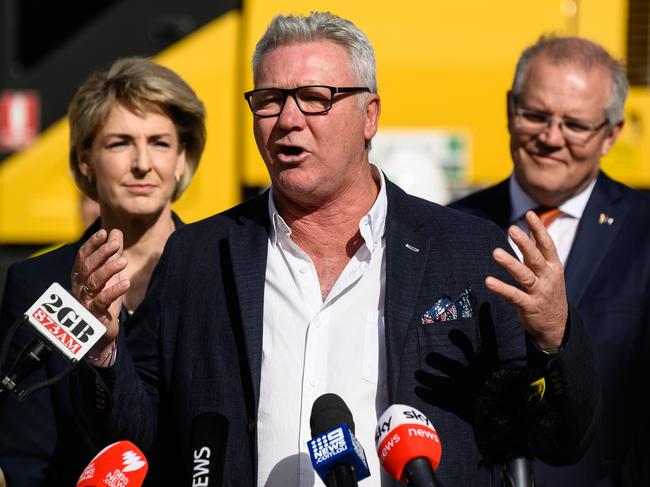
“I don’t know, to be honest. I think it’s going to be something that the industry probably needs down the track. The building industry at the moment is going really well, people are doing a lot of renos in isolation and things like that,” Cam said.
“More importantly, I think apprenticeships are really suffering from this, because tradesmen are maybe letting go of apprentices or not taking on apprenticeships. I think this could be good for that.”
READ MORE: Developers want stimulus as home building approvals flatline
Max Maddison 8.30am: HomeBuilder misses training, social housing: Labor
Opposition Education and Training spokeswoman Tanya Plibersek says the government’s HomeBuilder program misses two key elements.
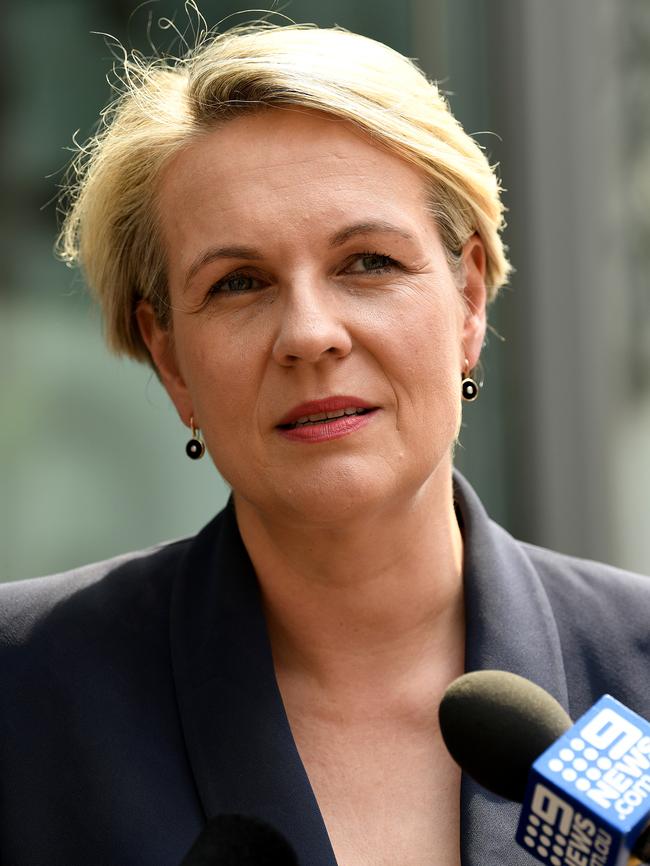
Ms Plibersek said while Labor applauds extra investment in the construction industry, the subsidy missed a training and apprenticeship component as well as an opportunity to invest in social housing.
“Yes, that’s great but one of the problems that you’ve identified yourself is that we’re losing 100,000 apprentices and trainees this year,” Ms Plibersek told ABC News.
“They will lose their jobs. We’ve been losing 2000 a week in the nine or so weeks since the shutdowns and so on began.”
Ms Plibersek also pointed to the need for social housing across the country.
“We have thousands being turned away every night in Australia from crisis accommodation, mums and kids fleeing violence, veterans sleeping in our parks,” she said.
READ MORE: $345m needed for arts ‘revival’
Max Maddison 7.56am: HomeBuilder to ‘rebuild’ communities: PM
The HomeBuilder program will “rebuild” communities and the economy, Prime Minister Scott Morrison says, as he foreshadows a looming war for jobs.
Speaking to Sunrise, Mr Morrison said the construction industry would support jobs in other sectors throughout the community.
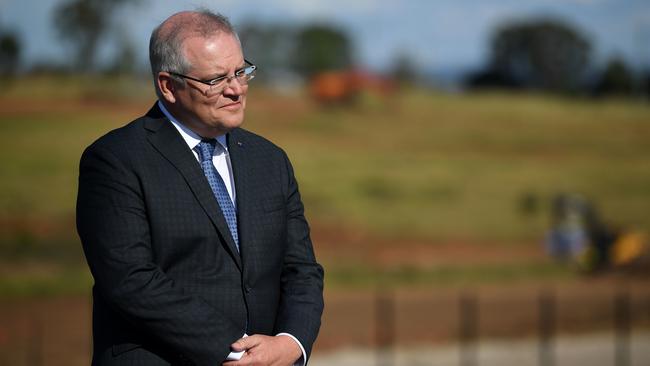
“Our government is in that battle for jobs. In that battle for jobs we have got to deal with the difficulties in the short term and we have got to deal with the challenges over the longer term as well,” Mr Morrison said.
“In the short term we know that in the residential building construction industry on the other side of September, the pipeline of works that they have been working on will really start to dry up quickly. Some 30,000 homes or thereabouts won’t get built.”
READ MORE: Do you qualify for HomeBuilder?
Max Maddison 7.20am: HomeBuilder ‘temporary, targeted’: Treasurer
Treasurer Josh Frydenberg is talking through the “demand-driven” HomeBuilder program details and the “real hole” in the housing sector as a result of COVID-19.
“And this initiative we’re announcing today, it’s temporary, it’s targeted,” Mr Frydenberg told ABC News.
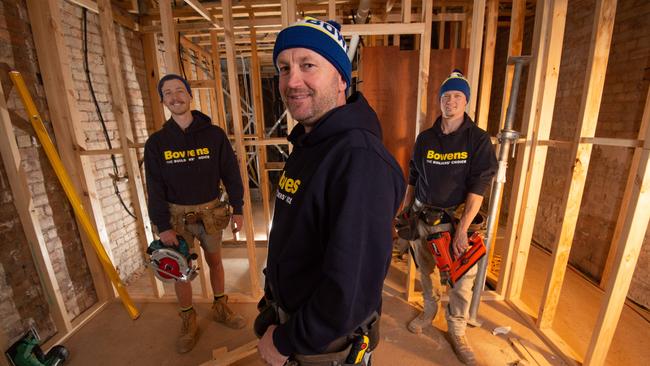
“And we’ll work through the existing state systems, and it will complement existing state programs that are supporting already first-home buyers.”
Mr Frydenberg has tempered his initial estimate and says the government is expecting between 25,000 and 30,000 new builds, or significant renovations.
He reiterates that the stimulus package is temporary and will fill the “void” in the economy that emerged during the pandemic.
READ MORE: How to access $25k homebuilder grant
Max Maddison 6.51am: Global virus count tops 6.4 million
The number of reported COVID-19 cases has passed 6.4 million, according to researchers from John Hopkins University.
At least 6,435,453 people are known to have been infected, while at least 382,093 have died.
The number of reported cases is greater than the entire population of Denmark, Nicaragua or Singapore.
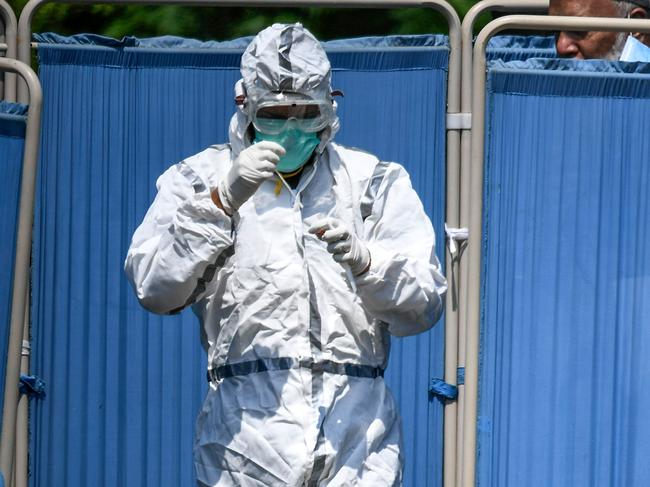
In Spain, the nation’s congress has voted to approve another two-week extension of the country’s state of emergency. The sixth and final extension is a continuation of the extraordinary measures that have been in place since March 14.
Meanwhile, Pakistan recorded its largest single day increase in infections, as its fourth politician died after testing positive for coronavirus.
The Imran Khan-led country saw 4065 confirmed cases in the previous 24 hours, with 67 deaths. The total number of cases now stands at 80,463 – slightly behind China.
Mian Jamshed Kakakhel, who was a member of a provincial assembly, died on Wednesday.
READ MORE: Expect a faster recovery this time
Max Maddison 6.32am: 30,000 new homes, renos under building fund
Treasurer Josh Frydenberg says he expects 30,000 new homes and renovations to take place under the HomeBuilder program.
However he warns that the program wasn’t going to fund a new tennis court or swimming pool.
“It’s important that it’s time constrained. The program will run through from today until December 31,” Mr Frydenberg said.
Speaking on Sydney radio 2GB, Mr Frydenberg also told Ben Fordham that the government was now focused on the transition out of the Job Keeper program.
“We’re certainly focused on the transition: 850,000 will be back in a job if the states follow through (with the three stages)”.
READ MORE: How to access $25k homebuilder grant
Graham Lloyd 5.15am: Pyne, Bishop push for renewables investment
A new think tank backed by former Liberal ministers Julie Bishop and Christopher Pyne has found investment in renewable energy should be a key part of the federal government’s COVID-19 recovery plan.
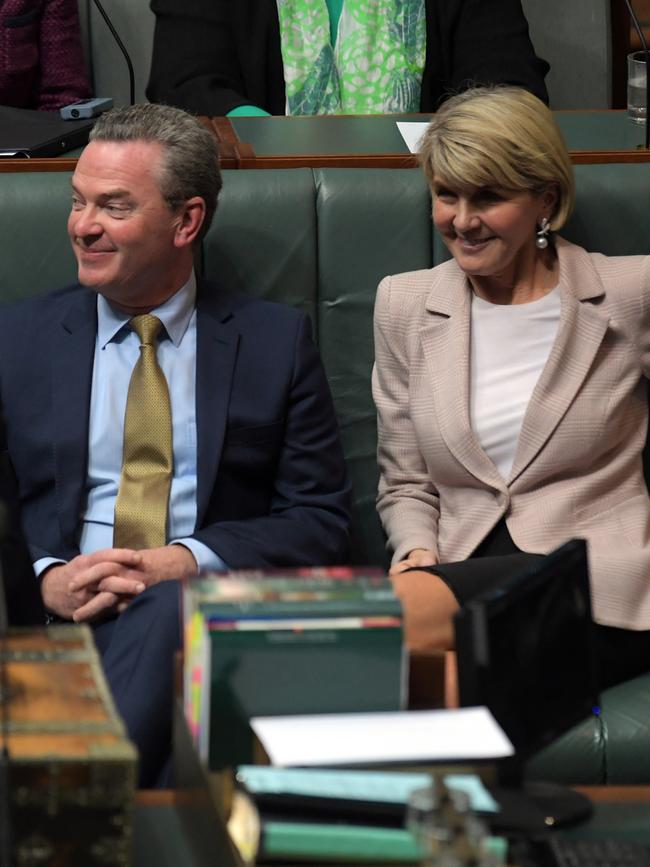
The first research by Blueprint Institute, released on Wednesday, found a big majority of Australians support investment in renewables rather than fossil fuels.
Eighty-eight per cent of Australians would support investment, including 94 per cent of Labor voters and 79 per cent of Coalition supporters.
More than half of those surveyed said investment in renewable energy research and development and renewable infrastructure should be one of the government’s top three priorities in creating new jobs and economic growth.
The institute, which counts Ms Bishop and Mr Pyne as advisers, is seeking to position itself as a moderate voice among other Liberal Party-aligned think tanks.
Read the full story here.
Geoff Chambers 5am: How you qualify for $25,000 HomeBuilder grants
A $15bn boost to economic activity will be delivered under the $688m HomeBuilder stimulus package, propping up more than one million jobs in the construction sector and handing Australians $25,000 cash grants to build new homes or renovate existing properties.
The six-month building support program has been designed to drive new work for carpenters, plumbers, bricklayers, architects, suppliers and electricians amid concerns of a 20 per cent drop-off in dwelling investment through the June quarter.
States and territories will be expected to absorb administration costs to implement the HomeBuilder scheme, which will be delivered directly to applicants through state revenue offices.
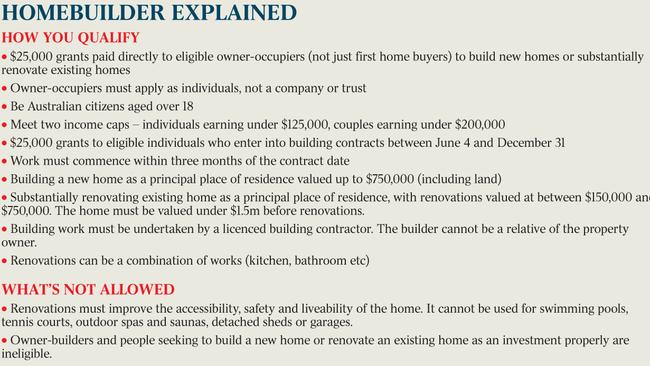
Read the full story, by Geoff Chambers and Simon Benson, here.
Patrick Commins 4.45am: Recession confirmed amid warnings of June hit
Australia has been plunged into its first recession in three decades by the once-in-a-century COVID-19 pandemic, ending the nation’s record 29-year run of growth, with Josh Frydenberg warning of a “far more severe” hit to the economy in the June quarter.
The Treasurer said the largest quarterly decline in consumption in 34 years had driven a 0.3 per cent contraction over the first three months of this year as a result of the staged introduction of social-distancing restrictions through March.
Annual GDP growth slowed from 2.2 per cent to 1.4 per cent, the slowest year-on-year growth since the global financial crisis, after the economy grew by 0.5 per cent over the December quarter, seasonally adjusted figures from the Australian Bureau of Statistics showed.
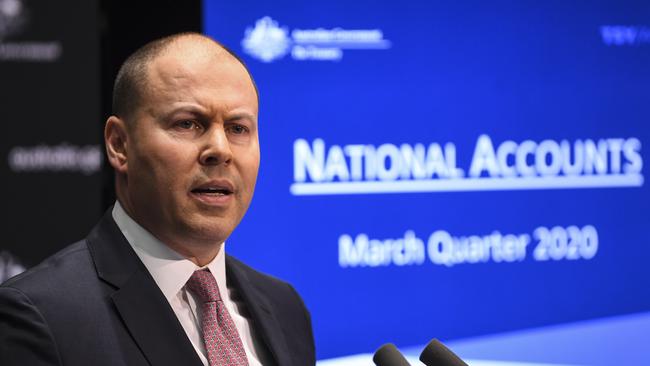
Read the full story, by Patrick Commins and Geoff Chambers, here.



To join the conversation, please log in. Don't have an account? Register
Join the conversation, you are commenting as Logout